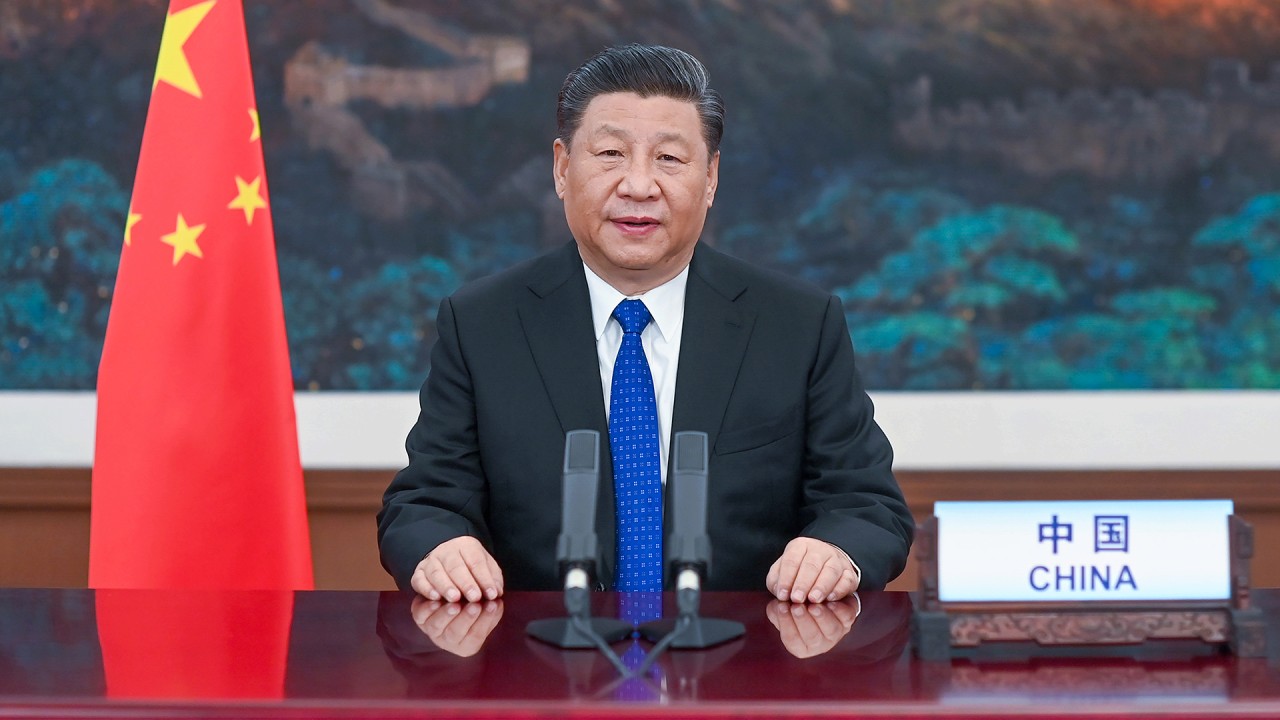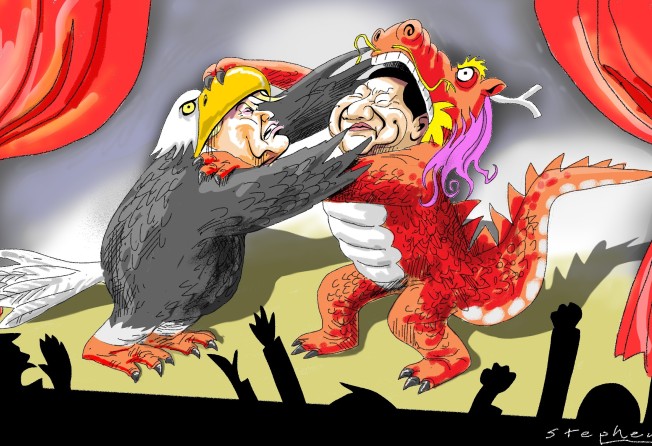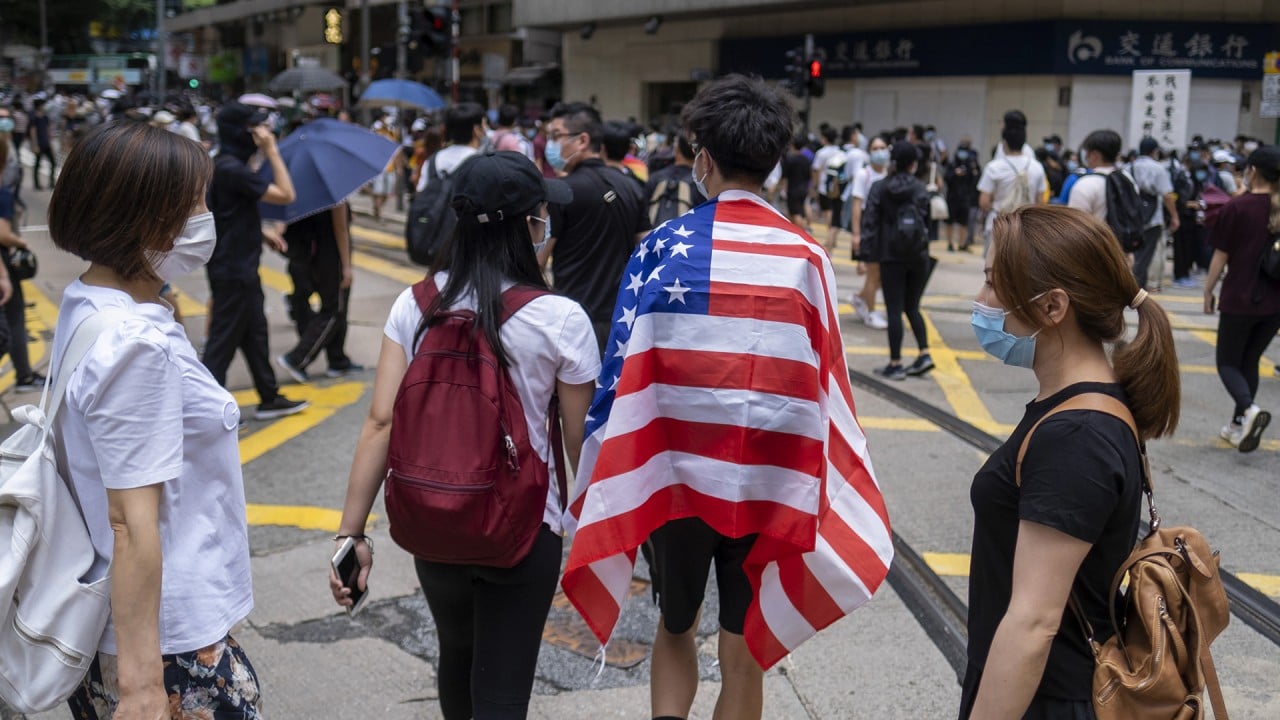
01:57
Xi Jinping tells World Health Assembly China has been transparent on coronavirus

The Covid-19 pandemic, its impact on the American economy, and the protests that have erupted over the murder of George Floyd have rocked the Trump administration. US President Donald Trump has been left scrambling to develop a strategy that will prevent him from suffering the humiliation of being the first incumbent since George H.W. Bush to not win a second term in office.
Meanwhile, Chinese President Xi Jinping has also been confronted with a slowing economy and questions regarding his country’s initial response to the Covid-19 epidemic, while facing ongoing grass-roots opposition in Hong Kong. And he too has recently sought to turn each of these challenges into opportunities to demonstrate his resolve to the Chinese people.
Both leaders then are increasingly viewing their rivals across the Pacific solely from within the prism of bolstering their rule at home. It is a particularly dark – and dangerous – looking glass. For Trump, China is the dragon against which he can prove himself deserving of four more years in the White House, while for Xi it appears that America is the eagle to defy to signal his country’s rise on the world stage.
Attacking China during the hurly-burly of the presidential election cycle is nothing new for candidates from either party. What is novel is that American politics is more divided now than it has been in decades and with the US president more mercurial than any of his recent predecessors, foreign policy strategy has been replaced by presidential whim.
Criticising the US, and asserting independence, has also long been a staple of Chinese foreign policy. But, at the same time, Xi seems significantly less concerned than those who immediately preceded him at the helm of the Chinese state – Hu Jintao, and before him, Jiang Zemin – over how the world will react to his heavy-handed attempts to resolve the steep challenges it faces.

01:57
Xi Jinping tells World Health Assembly China has been transparent on coronavirus
Such trends are creating increasingly fractious relations between the super powers.
Both leaders like to portray themselves as strong men who know what’s best. But the trade war badly weakened their country’s economies. Forbes recently reported that US stocks lost up to US$1.7 trillion in value over the course of the conflict, while in 2019 the Chinese economy grew at the slowest rate in 29 years.
Despite these losses, in January both countries declared victory in this stand-off. But the “phase one” deal they announced was always more aspirational than actual, and did little to erase the damage their economic battle had caused.
Now, as the vast economic toll of the pandemic comes into focus, the Chinese promise to purchase an additional US$200 billion of American goods appears simply fantastical. Each country’s economy appears to be in desperate straits.

Given such looming uncertainties, Trump will see reviving the trade conflict as a vehicle to beef up his anti-China credentials and to misdirect attention away from the extent of the US’ economic woes. Xi, ever attentive to his own nationalist image, will be loath to compromise. A series of escalating retaliatory measures will inevitably result.
Hong Kong is also emerging as a major flashpoint within the relationship.
The Chinese push for new security law for Hong Kong has already caused a fury in the city and widespread international condemnation. Xi, though, appears impervious to criticism. He seems much more concerned about putting an end to the massive protest movement which has consumed Hong Kong, and ensuring the uprising does not spill over into the rest of China. His actions, then, can also be seen as a sign of weakness rather than strength.
Despite Trump previously expressing approval of Xi’s ability to handle protesters, he has little choice but to take him to task over Hong Kong. He cannot be a strong critic of China if he does not address the Hong Kong issue, and he needs China as an enemy: he has no other external foe that allows him to demonstrate his commitment to making America tough again on the world stage.
It is, though, very difficult to imagine that such actions will force Xi to reverse course on Hong Kong. If anything, they are likely to further steel his determination to bring the city to heel.

02:18
White House says Beijing’s proposed national security law for Hong Kong could lead to US sanctions
Meanwhile, the coronavirus looms above all. On this score, both Trump and Xi have a great deal at stake. To the extent that either man becomes identified with his country’s failures in handling the outbreak and spread of Covid-19, his power at home and abroad will be diminished.
In contrast, the degree that each leader is able to pin blame for the virus’ rampant spread on the other side, while valorising his own role in containing it, will go a long way towards determining whether he will emerge from its shadow significantly stronger. The game between Trump and Xi on this front is not zero sum, where one’s gain is the other’s loss – it is scorched earth, destroying whatever stands in the way of victory, regardless of collateral damage.
Such posturing does not bode well for the citizens of either country. It undermines the international cooperation so desperately needed to overcome the vast economic and public health challenges facing both the US and China.
It also offers little solace to those in Hong Kong: it is abundantly clear that for both Washington and Beijing, the port city is of little consequence in and of itself. It is merely a bit player in a much larger, and potentially, tragic act of political theatre starring the embattled Trump and assertive Xi.
Allen Carlson is an associate professor in Cornell University’s Government Department. He is also the Michael J. Zak Chair of history for US-China relations, and director of The Levinson China and Asia-Pacific Studies programme at Cornell